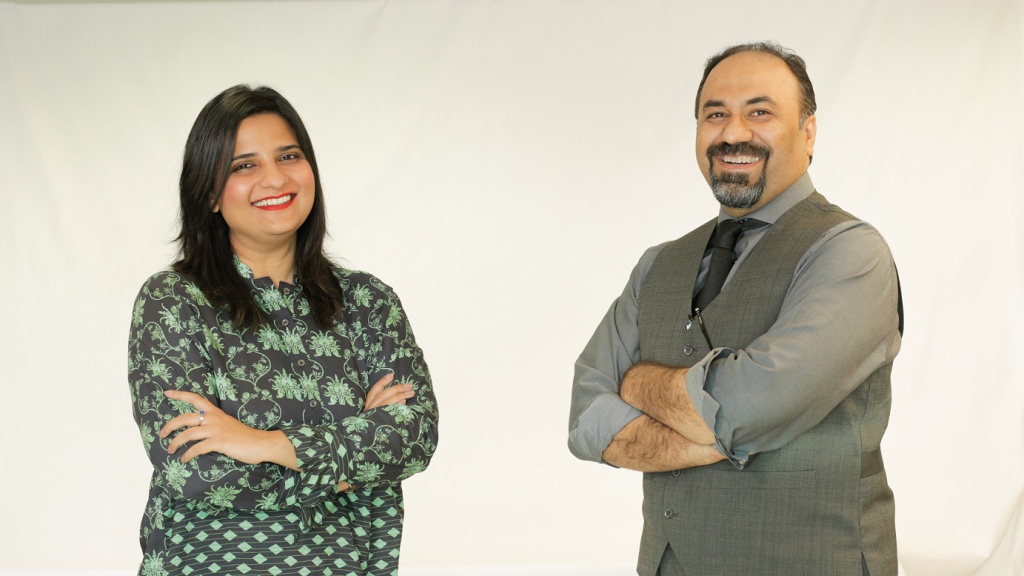
Dr. Izza Aftab (left) and Dr. Mohsen Ali (right) hope to bring about change with their multidisciplinary project.
Dr. Mohsen Ali and Dr. Izza Aftab are making waves. The pair of Fulbright alum, both professors at the Information Technology University in Lahore, have bagged the coveted Google Research Scholar Award worth USD 60,000 – and they are the only Pakistanis to have won this year.
Work that makes a difference
The 2021 Google Research Scholar Award supports early-career faculty who are doing impactful research. The winning project, for which Dr. Ali is the Principal Investigator (PI) and Dr. Izza is the co-PI, is titled ‘Is Economics from Afar Domain?’. It falls under the category of Machine Perception and involves designing interpretable machine learning algorithms to predict economic and development indicators of a region from satellite generalizable imagery and geo-spatial datasets.
Multidisciplinary in nature, this project interweaves aspects of machine learning, economics, and remote sensing to solve problems related to development and policy. Findings have the potential to aid governments and businesses because the project aims to present a viable alternative to the collection of administrative data that is conducted annually (or biennially, as is the case in Pakistan). This data helps design policy interventions and paints a geo-spatial picture of economic well-being in developing countries like Pakistan.
“Predicting economic well-being from afar is an important problem that has both local and global relevance. Similarly, there is considerable interest in the interpretability of machine learning models and their adaptation to a different domain. This award indicates that work done by academics in Pakistan can stand international scrutiny. Many of our colleagues here are working on great projects and our recognition is just one representation of that,” says Dr. Mohsen.
The Fulbright difference
Both researchers agree that their studies in the United States taught them how to view the world in a multidisciplinary manner, how to think critically, and how to ask big questions.
“My time at The New School as a doctoral student in Economics opened up numerous avenues for me and taught me how to work on multidisciplinary projects. The training, rigor and focus on critical thinking that is part and parcel of the Fulbright experience is truly invaluable,” says Dr. Aftab.
Dr. Mohsen agrees.
“Broadly speaking, I believe there are two overlapping effects of the Fulbright experience: how one views research problems and how one views the world. When I obtained my PhD from the University of Florida in Computer Vision, I learned how to approach research problems and to pursue rigor and quality in research work. Additionally, I was exposed to ideas and cultures from across the globe. Both these aspects have been fundamental in guiding my professional journey,” he adds.
When asked about how it was working with a fellow Fulbrighter, they are both full of praise for each other.
“Mohsen is perhaps one of the most talented individuals in Pakistan. His command over the subject and his ease of manner really made him the best person to partner with,” says Dr. Aftab.
“Multidisciplinary projects are inherently difficult ones, but if you find the right collaborator, it’s quite rewarding. That was the case while working with Izza,” chimes in Dr. Mohsen.
The collaborators plan to continue working on cutting-edge problems, engage in interesting research, and hopefully bring about some tangible positive change.
“A mentor at the University of Florida once said something that has stayed with me: the purpose of a PhD is not to make you just knowledgeable in one area. It is to prepare you to tackle the unknown,” concludes Dr. Mohsen. “It is this curiosity for the unknown that directed me to multidisciplinary problems, and that ultimately led us to this project.”